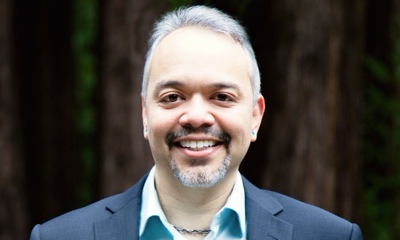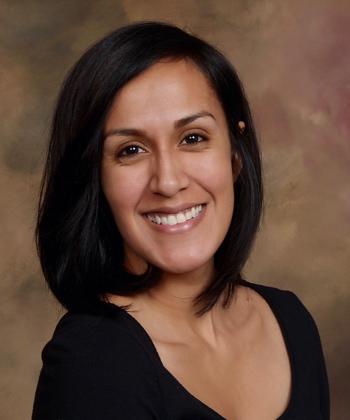UC Santa Cruz was awarded two grants from the University of California to help diversify its faculty and rethink leadership opportunities to better reflect the values, priorities, and talent of faculty members who are from underrepresented groups.
State lawmakers provided new funding to the University of California to advance faculty diversity. Both campus projects received funding from UCOP in September.
“The campus is grateful to the Office of the President for providing funding for these innovative projects that help us think about additional aspects of faculty diversity and inclusion,” said Herbert Lee, vice provost for Academic Affairs and the campus diversity officer for faculty.
Pilot program puts diversity at the forefront of searches
Roughly a third of the faculty recruitments in the coming year will put contributions to diversity, equity, and inclusion at the forefront.
The campus expects to run about 30 faculty recruitments in the coming year. In the recruitments that are part of the pilot program, search committees will first review and assess candidates’ statements on contributions to diversity, equity, and inclusion before determining whether to evaluate the rest of the application materials. The statements will also be redacted to reduce potential impact of implicit bias.
Candidates who do advance will be evaluated on the whole of their application. The UC Santa Cruz program is based on similar successful efforts at UC Berkeley and UC Davis. Searches that are not part of the pilot program will continue to be run under existing campus practices, which includes asking candidates to submit a statement about their contributions to diversity, equity, and inclusion.
Fifteen percent of UC Santa Cruz faculty members identify as underrepresented minorities. While that’s one of the highest percentages in the system, Lee said the campus must continue to increase faculty diversity.
“Faculty members are mentors and sources of inspiration for our students,” Lee said. “It’s critical that our faculty better reflect the great diversity of our student body and arrive ready to help make our campus even more inclusive.”
The campus is also encouraging search committees to ask candidates to give a talk on contributions to diversity, equity, and inclusion, and how they would work to further it at UC Santa Cruz if they were hired.
As part of the grant, the campus will host a workshop in winter quarter on faculty research into best practices for inclusive hiring.
A group of new faculty members will be recruited to launch a new global and community health program, an interdisciplinary collaboration between the divisions of Social Sciences and Physical and Biological Sciences. The faculty in the sciences will focus on parasitic and infectious diseases, the microbiome, structural biology, and stem cells, though all candidates who can contribute to global and community health are encouraged to apply. The faculty members in Social Sciences will focus on social justice and health metrics.
“Given the strength of our research on human health, tremendous student interest in courses on the topic, and our long standing commitment to progress on social justice, global and community health seemed like a natural area of growth for the campus, and one where we should make every possible effort to recruit faculty who reflect the diversity of the state and nation,” Koch said.
Other recruitments will be for professors in environmental art (Arts Division), signals and systems, deep learning, and serious games (Jack Baskin School of Engineering).
The $497,000 grant will help enable the campus to make a temporary hire who will assist with the additional work required to do the first screening with only the contributions to diversity statements. The funding will also be used to help advertise searches, support recruitment, support diversity/inclusion efforts of the recruited faculty, and supplement faculty startup packages.
Rethinking faculty leadership opportunities
In an effort to develop strategies to support faculty leadership, a team of researchers will interview and survey campus professors, and study national leadership programs. The goal is to redefine the meaning of leadership to be more inclusive of existing practices and efforts of historically marginalized faculty.
Associate Professor of Psychology Rebecca Covarrubias is leading the project with contributions from Jody Greene, associate vice provost for Teaching and Learning and professor of literature, Enrico Ramirez-Ruiz, professor of astronomy and astrophysics, and Katherine Quinteros, a graduate student in psychology.
Universities thrive from the leadership, both formal and informal, of faculty from underrepresented groups, Covarrubias said. However, many of these faculty might be reluctant to take on formal leadership appointments for a host of reasons. These might range from recognizing that these efforts might be dismissed or not valued to experiencing difficulty in balancing formal roles with heavy responsibilities for less-visible labor, such as mentoring and advising students.
This project provides an opportunity to rethink how we view faculty leadership, Covarrubias said.
“The hope is to work with faculty to collectively highlight the ways in which they already engage in transformative leadership at UC Santa Cruz,” she said. “The project calls for informing a leadership model that better acknowledges, affirms, and bolsters the cultural skills, assets, values and knowledge of all of its faculty.”
The researchers plan to share all research findings and other insights in summer 2020 with fellow faculty members and campus leaders as well as at national conferences and in peer-reviewed publications.




